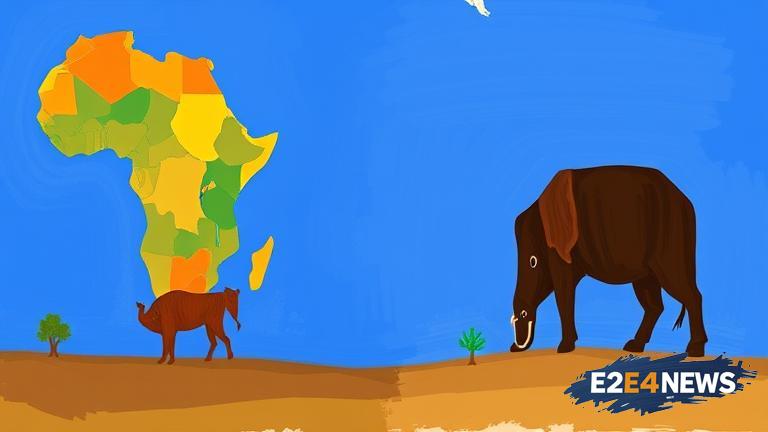The African continent is facing a significant challenge in the form of US tariff hikes, which are expected to have a profound impact on the region’s economy. In response, African countries are seeking to build economic resilience through diversification and self-sufficiency. This involves reducing dependence on external markets and focusing on intra-regional trade and investment. The African Continental Free Trade Area (AfCFTA) is a key initiative in this regard, aiming to create a single market for goods and services across the continent. By promoting trade and investment within the region, AfCFTA is expected to increase economic growth, reduce poverty, and improve living standards. However, the implementation of AfCFTA is not without its challenges, including the need for significant investment in infrastructure and the development of regional value chains. Despite these challenges, many African countries are making significant progress in diversifying their economies and promoting self-sufficiency. For example, countries such as Ethiopia and Rwanda are investing heavily in manufacturing and agriculture, while others, such as South Africa and Nigeria, are developing their services sectors. The African Union has also launched a number of initiatives aimed at promoting economic development and integration, including the African Development Bank’s Africa50 fund, which aims to mobilize funding for infrastructure development. Furthermore, the continent is also seeing a growth in innovation and entrepreneurship, with many startups and small businesses emerging in areas such as fintech, e-commerce, and renewable energy. These developments are not only creating new opportunities for economic growth but also helping to reduce dependence on external markets. In addition, many African countries are also seeking to develop their natural resources, including oil, gas, and minerals, in a sustainable and responsible manner. This involves investing in exploration and production, as well as developing the necessary infrastructure to support the extraction and transportation of these resources. The development of natural resources is expected to play a key role in promoting economic growth and reducing poverty across the continent. Moreover, the African continent is also home to a large and growing consumer market, with many countries experiencing rapid urbanization and an expanding middle class. This presents significant opportunities for businesses and investors, both within and outside the continent. However, to fully realize these opportunities, it is essential that African countries continue to invest in infrastructure, education, and skills development, as well as promoting good governance and the rule of law. The US tariff hikes are also expected to have a significant impact on global trade, with many countries, including those in Africa, likely to be affected. In response, the international community is calling for a more multilateral approach to trade, with a focus on promoting fair and equitable trade practices. The World Trade Organization (WTO) is playing a key role in this regard, working to promote trade facilitation and reduce trade barriers. In conclusion, the African continent is facing significant challenges in the form of US tariff hikes, but is also seeking to build economic resilience through diversification and self-sufficiency. By promoting intra-regional trade and investment, investing in infrastructure and education, and developing natural resources in a sustainable and responsible manner, African countries can reduce their dependence on external markets and promote economic growth and development. The continent’s growing consumer market and innovation ecosystem also present significant opportunities for businesses and investors, and the international community is calling for a more multilateral approach to trade to promote fair and equitable trade practices. As the continent continues to navigate the challenges and opportunities of the global economy, it is essential that African countries remain committed to promoting economic development and integration, and work together to build a more prosperous and resilient future. The African Union and other regional organizations are playing a key role in this regard, working to promote economic development and integration, and to address the challenges facing the continent. The private sector is also critical to promoting economic growth and development, and many businesses and investors are already working to develop the continent’s natural resources, promote innovation and entrepreneurship, and invest in infrastructure and education. Overall, while the US tariff hikes present significant challenges for the African continent, they also present opportunities for the region to build economic resilience and promote self-sufficiency. By working together and promoting economic development and integration, African countries can reduce their dependence on external markets and promote economic growth and development, and create a more prosperous and resilient future for all.
